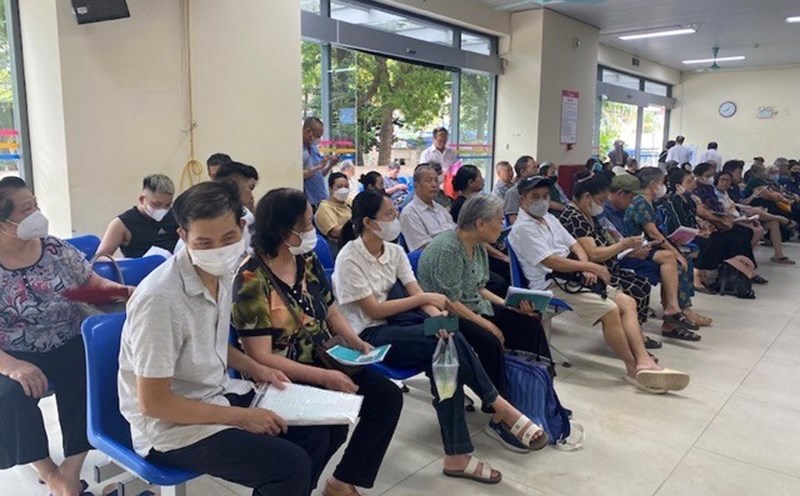Mr. Vuong Anh Duong, Deputy Director of the Department of Medical Examination and Treatment Management (Ministry of Health) said that the regulation on prescribing a maximum of 90 days comes from long-term treatment practice, especially after the COVID-19 pandemic. Many medical facilities have proposed that the Ministry of Health allow long-term prescriptions to reduce the frequency of re-examination and ensure continuous and effective treatment.
Before issuing long-term prescription regulations, the Ministry of Health worked with professional councils, end-line hospitals and related units to carefully analyze the benefits and disadvantages of the policy.
Top hospitals assigned to propose diseases and groups of diseases that need to apply long-term prescriptions must also carefully consider the specific risks and benefits for each case.
The Ministry of Health has outlined a number of risks that need to be controlled such as: patients do not ensure conditions for drug preservation; not being closely monitored for unwanted effects; the disease's progression needs to adjust the pathology but has not yet been re-evaluated; or patients lose or do not use all drugs, causing waste... These factors have been taken into account in the policy making process.
"In terms of implementation, this regulation is not widely applied, but doctors must fully assess the clinical condition and stable prognosis before being prescribed a long prescription. At the same time, patients and their families also need to raise their sense of responsibility in complying with treatment, preserving drugs properly and monitoring unusual signs to promptly review when needed," Mr. Duong emphasized.
According to Mr. Duong, some grassroots health facilities, especially in remote areas, may face challenges in ensuring adequate supply of drugs when the number of prescribed drugs each time increases by three compared to before. In addition, some specialized drugs may not be popular or are lacking locally at certain times.
The list of diseases that apply a 9-day prescription is mainly common chronic diseases, with many equivalent drugs and replacement active ingredients. Rare, complex diseases such as cancer or special blood diseases are still mainly treated at the central level, so they do not put too much pressure on the lower level.
The Ministry of Health will continue to issue specific professional guidelines, while supporting localities in upgrading prescription management software, improving prescription processes, and synchronizing the monitoring system to monitor implementation effectiveness. Units proactively review and plan a reasonable number of drugs according to the actual prescription, to ensure that patients are fully distributed and without interruption in treatment.











